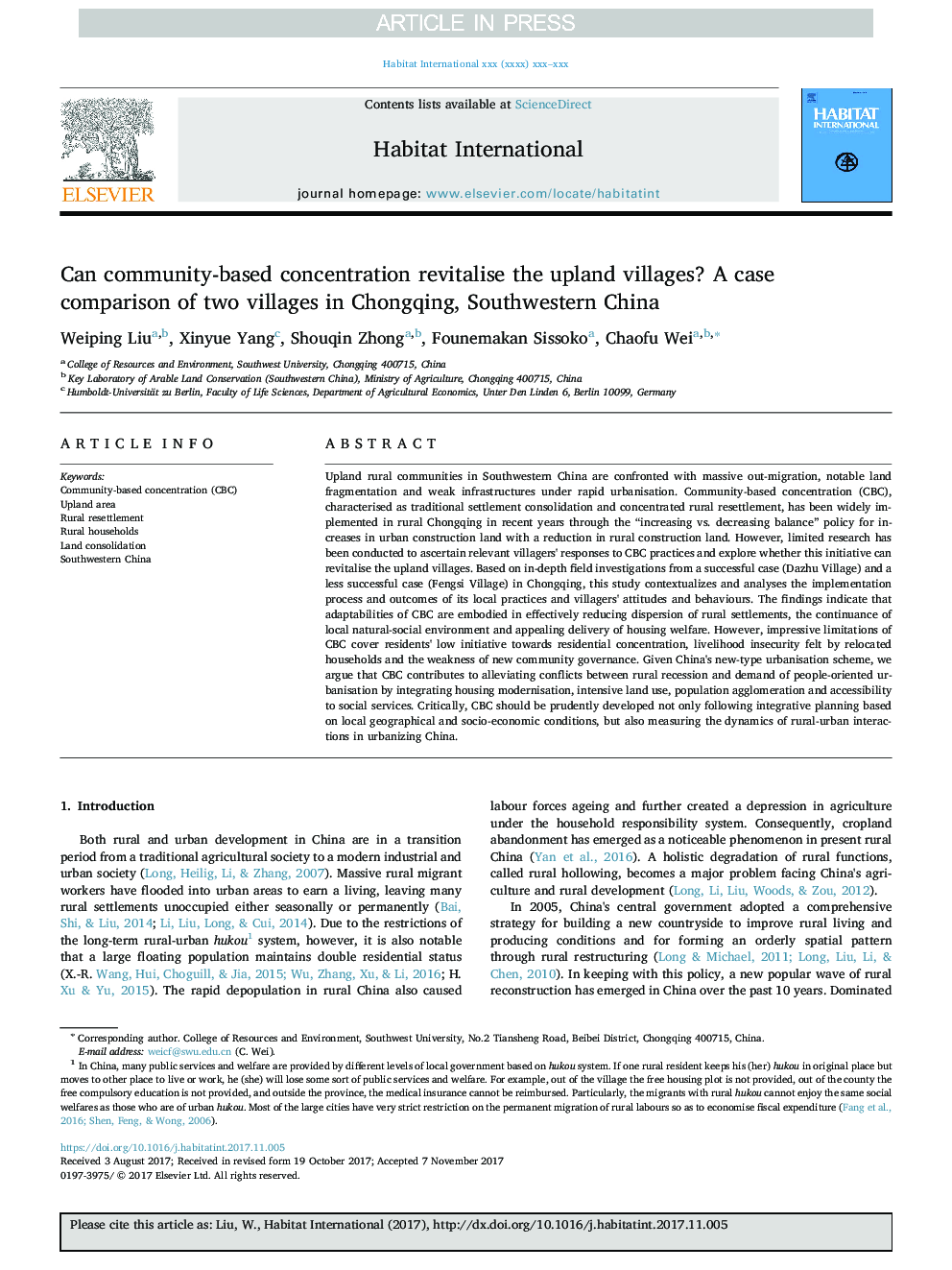| Article ID | Journal | Published Year | Pages | File Type |
|---|---|---|---|---|
| 7455019 | Habitat International | 2018 | 14 Pages |
Abstract
Upland rural communities in Southwestern China are confronted with massive out-migration, notable land fragmentation and weak infrastructures under rapid urbanisation. Community-based concentration (CBC), characterised as traditional settlement consolidation and concentrated rural resettlement, has been widely implemented in rural Chongqing in recent years through the “increasing vs. decreasing balance” policy for increases in urban construction land with a reduction in rural construction land. However, limited research has been conducted to ascertain relevant villagers' responses to CBC practices and explore whether this initiative can revitalise the upland villages. Based on in-depth field investigations from a successful case (Dazhu Village) and a less successful case (Fengsi Village) in Chongqing, this study contextualizes and analyses the implementation process and outcomes of its local practices and villagers' attitudes and behaviours. The findings indicate that adaptabilities of CBC are embodied in effectively reducing dispersion of rural settlements, the continuance of local natural-social environment and appealing delivery of housing welfare. However, impressive limitations of CBC cover residents' low initiative towards residential concentration, livelihood insecurity felt by relocated households and the weakness of new community governance. Given China's new-type urbanisation scheme, we argue that CBC contributes to alleviating conflicts between rural recession and demand of people-oriented urbanisation by integrating housing modernisation, intensive land use, population agglomeration and accessibility to social services. Critically, CBC should be prudently developed not only following integrative planning based on local geographical and socio-economic conditions, but also measuring the dynamics of rural-urban interactions in urbanizing China.
Related Topics
Social Sciences and Humanities
Social Sciences
Development
Authors
Weiping Liu, Xinyue Yang, Shouqin Zhong, Founemakan Sissoko, Chaofu Wei,
